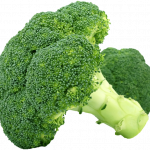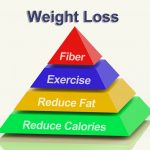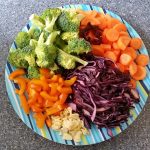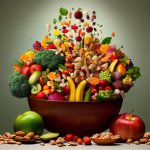Are you looking to improve your health and reduce your risk of chronic diseases? One way to achieve these goals is by adopting a plant-based diet. Whether you’re a carnivore looking to make the transition or a vegetarian wanting to optimize your diet, this beginner’s guide will provide you with the knowledge and tools necessary for success.
A plant-based diet consists of foods derived from plants, such as fruits, vegetables, whole grains, legumes, nuts, and seeds. By focusing on these nutrient-dense foods, you’ll naturally consume fewer calories while still meeting all of your essential nutrient needs.
In addition to helping with weight management, research shows that a well-planned plant-based diet can lower your risk of heart disease, type 2 diabetes, certain cancers, and other chronic conditions.
So let’s get started on your journey towards optimal health.
What Is A Plant-Based Diet?
 A plant-based diet is a dietary pattern that focuses on consuming foods derived from plants. This includes fruits, vegetables, whole grains, legumes, nuts and seeds. The main idea behind this type of diet is to replace animal-based products with plant-based substitutes.
A plant-based diet is a dietary pattern that focuses on consuming foods derived from plants. This includes fruits, vegetables, whole grains, legumes, nuts and seeds. The main idea behind this type of diet is to replace animal-based products with plant-based substitutes.
Consuming a plant-based diet has been associated with numerous health benefits, including lower rates of chronic diseases such as heart disease, diabetes and certain types of cancer. Additionally, it has been shown to improve overall digestion and promote a healthy weight. By focusing on whole foods that are high in fiber and nutrients, individuals can nourish their bodies while reducing their risk of illness.
In addition to the health benefits, adopting a plant-based diet can have a positive environmental impact by reducing greenhouse gas emissions and preserving natural resources. Plant-based diets require fewer resources such as water and land compared to animal-based diets.
This makes it an ethical choice for those who want to reduce their carbon footprint and contribute towards a sustainable future.
The Nutritional Benefits Of A Plant-Based Diet
As we learned in the previous section, a plant-based diet emphasizes fruits, vegetables, whole grains, legumes, nuts and seeds while minimizing or eliminating animal products. But why should you choose a plant-based diet? Let’s explore the nutritional benefits.
Firstly, plant-based protein sources are abundant and provide all essential amino acids necessary for muscle growth and repair. Legumes such as chickpeas and lentils, tofu and tempeh, as well as nuts and seeds like almonds and chia seeds are great sources of protein. Additionally, these foods contribute fiber which can help regulate blood sugar levels and promote digestive health.
Secondly, essential vitamins and minerals are plentiful in a plant-based diet. Vitamin C found in citrus fruits helps with iron absorption from plant foods like spinach and kale. Calcium is also present in various dark leafy greens like collard greens and bok choy. Plant sources of omega-3 fatty acids include flaxseeds and walnuts – important for heart health.
Lastly, incorporating diverse plant foods into your meals ensures that you receive an array of nutrients necessary for optimal health. For example, sweet potatoes contain beta-carotene which converts to vitamin A promoting healthy vision while blueberries contain antioxidants that protect cells from damage caused by free radicals.
Now that we understand the nutritional benefits of a plant-based diet including plant based protein sources and essential vitamins/minerals; let’s dive deeper into how to incorporate these foods into your daily meals for optimal health.
How To Make The Transition To A Plant-Based Diet
Making a transition to a plant-based diet can be challenging, especially if you have been consuming animal products for a long time. However, with the right approach, making this switch can be easy and sustainable. Here are some tips to help you make the transition:
Firstly, start by gradually reducing your intake of animal products while increasing your consumption of plant-based foods. Begin by incorporating more fruits, vegetables, legumes, nuts and seeds into your meals. This way you will not only add more nutrients to your diet but also learn new recipes that are delicious and satisfying.
Secondly, grocery shopping can be overwhelming when transitioning to a plant-based diet. To make it easier, make a list of staples such as beans, lentils, quinoa, brown rice, tofu or tempeh that you can always have on hand for quick meals. When grocery shopping make sure to stock up on fresh produce and try new items like different types of mushrooms or leafy greens.
Thirdly, dining out may seem like a challenge when switching to a plant-based diet. But most restaurants offer vegetarian or vegan options nowadays so do not hesitate to ask your server if they have any vegan menus available. You can also check online beforehand to see if there are any vegan restaurants or cafes in your area that you could visit.
I encourage my clients to take it one step at a time when transitioning to a plant-based diet. Remember that every small change counts towards better health and sustainability in the long run!
Tips For Meal Planning And Preparation
Imagine you are embarking on a journey to a new land. You have a general idea of where you want to go, but the road ahead is uncertain. That’s what transitioning to a plant-based diet can feel like – an exciting yet daunting adventure with unknowns lurking at every corner. But fear not, for with the right guidance and preparation, you can make this journey a successful one.
Now that you have made the decision to switch to a plant-based diet, it’s time to tackle grocery shopping. Make a list of all the fruits, vegetables, legumes, whole grains, and nuts that you enjoy eating.
Then, head to your local farmer’s market or grocery store and stock up on these items. Don’t forget to explore new foods too! Trying out exotic produce such as dragonfruit or jackfruit can add excitement and diversity to your meals.
Flavor pairing is key when it comes to meal planning and preparation in a plant-based diet. Think about how different foods complement each other in terms of taste and texture. For example, pairing sweet potatoes with black beans or quinoa with roasted vegetables can create delicious and satisfying meals.
Experimenting with herbs and spices such as rosemary or turmeric can also elevate the flavors of your dishes. With some creativity and practice, meal planning will become second nature in no time.
Overcoming Common Challenges On A Plant-Based Diet
Adopting a plant-based diet may seem daunting at first, but with the right tools and mindset, it can be a rewarding journey towards optimal health. However, like any lifestyle change, there may be challenges along the way.
One common challenge is meal variety. It can be easy to fall into the habit of eating the same meals over and over again, which can lead to boredom and dissatisfaction. To overcome this challenge, try experimenting with different cuisines and flavors. Explore new recipes and ingredients to keep things interesting.
Another challenge that individuals may face when adopting a plant-based diet is navigating social situations. Dining out or attending social events where meat-centric dishes are served may feel overwhelming or isolating. In these situations, communication is key. Reach out to the host ahead of time to discuss dietary restrictions and offer to bring a dish to share that aligns with your plant-based lifestyle. When dining out, research menus ahead of time or ask for modifications to accommodate your needs.
Finally, it’s important to remember that transitioning to a plant-based diet is a personal journey and one that should be approached with patience and self-compassion. Don’t beat yourself up if you slip up or make mistakes along the way – it’s all part of the learning process. Celebrate your successes, no matter how small they may seem, and focus on progress rather than perfection. With time and effort, you’ll find that overcoming common challenges on a plant-based diet becomes second nature as you continue on your path towards optimal health.
Can A Plant-Based Diet Provide Enough Protein For Muscle Building And Maintenance?
I often get asked if a plant-based diet can provide enough protein for muscle building and maintenance.
The answer is yes! There are plenty of plant-based protein sources that can help you meet your daily needs, such as beans, lentils, tofu, tempeh, nuts, and seeds.
However, if you’re having trouble consuming enough protein through whole foods alone or have increased protein needs due to intense exercise or aging, there are also protein supplementation options available.
Just make sure to choose a high-quality supplement made from whole food sources and talk to your healthcare provider or a registered dietitian before adding it to your routine.
Are There Any Nutrients That Are Difficult To Obtain On A Plant-Based Diet?
Plant-based diets can provide all the necessary nutrients for optimal health, but there are a few nutrients that can be difficult to obtain.
Omega-3 fatty acids are essential for brain and heart health, and while they are commonly found in fish, plant-based sources such as chia seeds, flaxseeds, and walnuts can also provide this nutrient.
Additionally, calcium is important for strong bones and teeth, but dairy products are not the only source of this mineral. Plant-based alternatives such as fortified plant milks, tofu made with calcium sulfate, and leafy greens like kale can also provide adequate amounts of calcium.
It’s important to include a variety of nutrient-rich plant foods in a plant-based diet to ensure all nutrient needs are met.
How Can I Ensure I Am Getting Enough Iron On A Plant-Based Diet?
Iron is a vital nutrient for our bodies, playing a crucial role in oxygen transport and energy production. It’s no wonder that people often worry about getting enough of it on a plant-based diet.
Luckily, there are plenty of iron-rich plant foods to choose from, such as leafy greens, legumes, nuts and seeds, and whole grains. However, some plant-based foods can also contain iron absorption inhibitors like phytates and polyphenols.
To ensure optimal iron absorption from your meals, consider pairing iron-rich foods with enhancers like vitamin C or cooking with cast-iron pans. I encourage you to embrace the abundance of plant-based options available to you while being mindful of how to maximize your nutrient intake through strategic food pairings and preparations.
Can I Still Eat Out At Restaurants While Following A Plant-Based Diet?
When following a plant-based diet, it is still possible to enjoy dining out at restaurants.
Many restaurants now offer plant-based options on their menu, or are willing to modify existing dishes to accommodate dietary restrictions.
To ensure that you are making the healthiest choices possible, start by researching the restaurant’s menu online before you go.
Look for dishes that are high in plant-based proteins such as beans, lentils, and tofu, and be sure to ask your server about any modifications or substitutions that can be made.
Additionally, don’t be afraid to speak up and ask questions about how the food is prepared and what ingredients are used.
By following these dining tips, you can still enjoy eating out while sticking to your plant-based diet.
How Can I Deal With Social Pressure Or Criticism When Choosing A Plant-Based Diet?
Navigating social situations can be a challenge when trying to maintain a plant-based diet. It’s common to face criticism or pressure from friends and family who may not understand your dietary choices.
However, it’s important to remember that your health and well-being are top priorities. When attending parties, offer to bring a dish that aligns with your dietary needs so you have options available. If faced with criticism, calmly and confidently explain why you’ve chosen this lifestyle and the benefits it provides for your health.
Remember, it’s okay to stand up for yourself and prioritize your own health goals. I encourage you to stay true to yourself and find support in like-minded individuals who can provide encouragement and understanding during this journey.
I can tell you that implementing a plant-based diet can be one of the best decisions you make for your health.
Not only is it rich in essential nutrients and fiber, but it has also been linked to a reduced risk of chronic diseases such as heart disease and diabetes.
If you’re concerned about getting enough protein on a plant-based diet, rest assured that there are plenty of sources available such as beans, lentils, tofu, and tempeh.
While certain nutrients may require more attention on a plant-based diet, with careful planning and variety in your meals, you can easily meet all your nutrient needs.
Don’t hesitate to consult with a registered dietitian for personalized advice and guidance.
Remember that choosing a plant-based lifestyle is a journey and it’s okay to take it one step at a time.
With patience and dedication, you’ll soon reap the benefits of optimal health.









